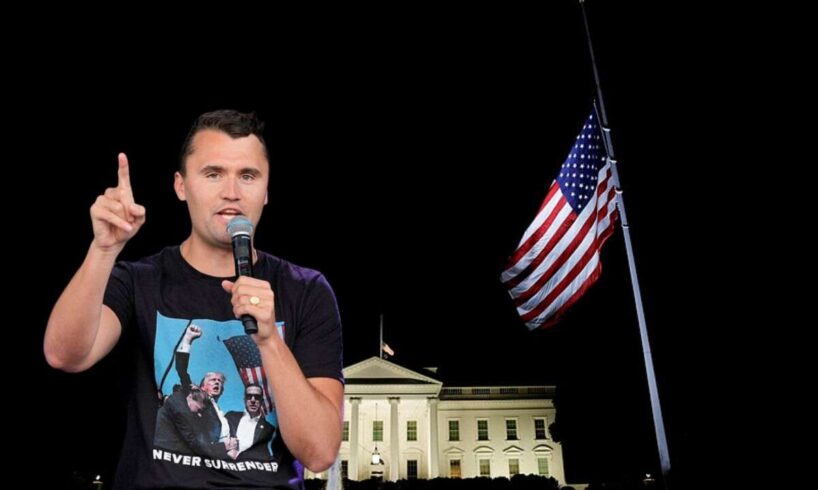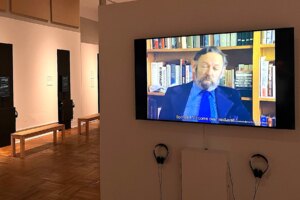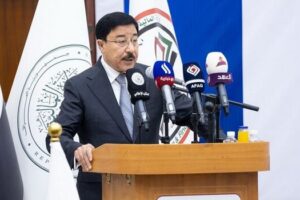
American conservative activist Charlie Kirk was fatally shot while speaking at a public forum he hosted at Utah Valley University. Charlie Kirk was regarded as one of the most influential figures among young right-wingers in the United States. He was born and raised in the suburbs of Chicago, where he stood out in high school as a conservative voice in a liberal-leaning environment. During his high school years, he was known for not being afraid to challenge teachers and peers on political topics. After his application to the West Point Military Academy was rejected in 2012, he pursued a distinctly political career path.
Video: WARNING: DISTURBING FOOTAGE: The attack on Charlie Kirk
He was shot at the amphitheater of the university with hundreds gathering for his Q&A session, when shots were heard and blood began pouring from his neck. This was his first stop of his American Comeback Tour in which he planned to crisscross America and make the case of conservatism.
In that same year, encouraged by his mentor Bill Montgomery, Kirk forwent academic studies and founded the organization Turning Point USA at the age of 18. What started as a small initiative on American campuses grew within a few years into a large-scale conservative movement with thousands of chapters and enormous budgets. The organization is now considered the primary body in the US for political engagement among university and high school students.
Alongside his organizational work, Kirk built an impressive media career. He was a frequent guest on conservative networks, authored several successful books, and hosted a popular podcast and a nationally syndicated radio show. His digital platforms attract millions of followers and downloads, positioning him as one of the foremost voices in the conservative movement.
Charlie Kirk, Turning Point USA founder, greets the crowd during the AmericaFest 2024 conference sponsored by conservative group Turning Point in Phoenix, Arizona, U.S. December 19, 2024 (Reuters/Cheney Orr)
Over the years, Kirk also drew public criticism. It was alleged, among other things, that he fostered ties with extremist elements and promoted conspiracy theories, in addition to his organization’s shift from emphasizing free-market values to a distinct Christian-nationalist identity. Nevertheless, his supporters viewed him as a central figure in recruiting and mobilizing young people for conservative political action and in bolstering the standing of President Donald Trump among the younger generation.
Kirk advocated for a foreign policy supportive of Israel within the conservative-evangelical discourse in the US. Since October 7, he voiced strong opinions against Hamas’s actions and in support of Israel – including during confrontations with pro-Palestinian and Hamas supporters.
Beyond his organizational and media endeavors, Kirk cemented his position as one of President Donald Trump’s closest allies. He was a central figure in recruiting young people for Trump’s campaigns and co-led “Students for Trump,” a student movement that worked to mobilize approximately one million students to vote in the 2020 election.
Kirk also played a significant role in the 2024 elections. Fundraising and grassroots efforts he led were directly credited with improving Trump’s performance among young people, a demographic where Democrats traditionally held the lead. Kirk himself became a favored figure within the Trump family, and this past January, he joined Donald Trump Jr. on a trip to Greenland – a testament to the close personal and political bond that had formed.
Concurrently, Kirk was known as a steadfast supporter of Israel within the conservative camp. While a segment of the younger generation on the American right expresses skepticism toward traditional US foreign policy, Kirk was considered one of the leading voices in defense of Israel. He frequently confronted public displays of antisemitism among youth, especially following the October 7 attack, stressing that antisemitism is “poison for the mind” and “demonic evil.”
Despite facing criticism for occasionally providing a platform to speakers with anti-Israel views and for voicing explicit opposition to calls to limit anti-Israel protests while stressing the importance of free speech, many in the pro-Israel community regarded him as a key ally in the struggle for the public opinion of the younger generation in the United States.





